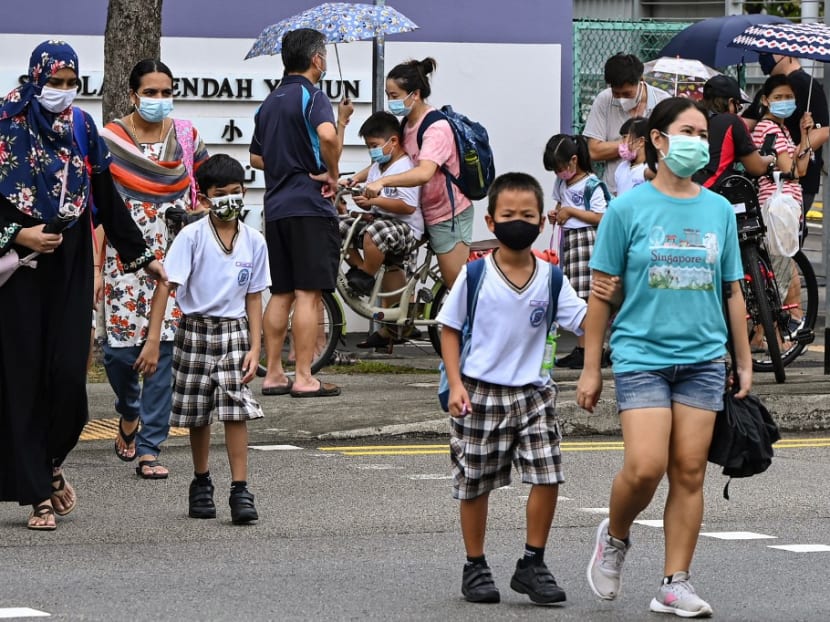Best protection for children is to get them vaccinated against Covid-19, says Janil Puthucheary
SINGAPORE — The best way parents can protect their children is to get them vaccinated against Covid-19, Dr Janil Puthucheary said on Tuesday (Dec 14).

Children walking home after school. Singapore is set to roll out vaccination against Covid-19 for children aged five to 11.
SINGAPORE — The best way parents can protect their children is to get them vaccinated against Covid-19, Dr Janil Puthucheary said on Tuesday (Dec 14).
The Senior Minister of State for Health said the Government understands that some parents are concerned about getting their children immunised.
"They want the best thing for their children. They want to be able to protect their children and create opportunities for their children," he added.
"And this is what we want as well. And our assessment is that the best way to do that is to vaccinate our children."
Speaking at a press conference by the national Covid-19 task force, he added that the analysis was that the benefits of vaccination far outweigh the risks of getting Covid-19.
The Health Sciences Authority had approved the use of the Pfizer-BioNTech Covid-19 vaccines for children aged five to 11 after consultations with paediatric healthcare workers.
Dr Puthucheary also said that the risk of an adverse event occurring from vaccination is only one in a million, but the risk of a serious event if a child were to be infected with Covid-19 is about 100 times more likely, at one in 10,000.
While the effects of Covid-19 tend to be milder in children than in adults, vaccination is still a safer option than getting the disease.
"There is still a risk of children developing severe disease with some cases requiring hospitalisation, oxygen supplementation and ICU (intensive care unit) admission," Dr Puthucheary said.
He added that there have been one to two cases of multi-system inflammatory syndrome (MIS-C) in children every week since mid-October, and some of these children had to be admitted into ICUs.
Besides reducing the risk of children getting seriously ill or developing MIS-C, vaccination reduces the risk of other family members from contracting the virus and falling ill.
"Our children, as you know, will spend a lot of their time in places like schools and preschools. And here, transmission can spread quickly... as the children interact, and this then puts at risk the family members of such children."
They could be siblings who are younger and so, not yet eligible for vaccination, or those who are older such as the grandparents for whom the risks are higher even if they are vaccinated, Dr Puthucheary said.
Getting immunised also means that children's education and opportunity to take part in co-curricular activities in school are less likely to get disrupted.
They may experience some side effects such as muscle pain, redness, swelling, tiredness, headache, fever or chills after getting vaccinated, but these are signs that the body is reacting to the vaccine as it builds up protection and immunity, and the side effects will subside in a few days, Dr Puthucheary added.
Children who develop severe allergies after getting inoculated are also rare, based on trials done in the United States.
Vaccination for children aged five to 11 in Singapore will start before the end of this year and once vaccine doses have been delivered.








